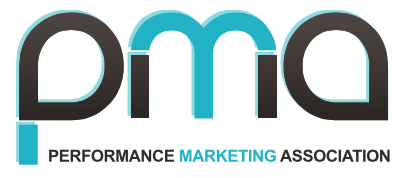Pinterest Bans Affiliate Links
 Pinterest is readying monetization plans for its popular social sharing site and earlier this month pulled the plug on affiliates warning that the service will “automatically remove all affiliate links, redirects and trackers on Pins.”
Pinterest is readying monetization plans for its popular social sharing site and earlier this month pulled the plug on affiliates warning that the service will “automatically remove all affiliate links, redirects and trackers on Pins.”
A History of Changes to Affiliate Links
This isn’t the first time Pinterest has attempted to stop affiliate links, but the company has never issued a total ban. Pinterest has first gone after big affiliates including RewardStyle and Hello Society, letting affiliates of those networks know that “if you’ve participated in either of these affiliate networks, all your past Pins will show up normally and still be clickable.”
What This Means for Performance Marketers
Although Pinterest claims that no pins will be deleted, the tracking links attached to them will be removed.
Recently, Pinterest has pitched Promoted Pins, an ad offering that followed its own affiliate link experiment. Then Pinterest announced a deal with Apple, potentially paving the way for app install ads. Then news broke that Pinterest could launch its own buy button in partnership with Stripe, according to VentureBeat.
Pinterest executives stated that this move is an attempt to create a better experience for pinners and remove affiliate links and redirects causing irrelevant Pins in feeds, broken links and other spammy behavior.
Today, in a separate announcement, Pinterest reported that their system testing found that they have successfully responded to ‘bad behavior’ at a rate of 99.99 percent, compared to the previous rate, which was 95 percent.
Performance Marketing Experts Weigh In
Surprisingly, some in the affiliate space agree with Pinterest’s decision to ban affiliate links.
Affiliates need to use Pinterest in the way it was intended to be used. Affiliates should use Pinterest to drive consumers to interesting content, i.e., interesting content that the affiliate has generated.
“Pinterest is a site that adds value to the internet. Affiliates who use Pinterest with the intent of generating commission are detracting from the added value that Pinterest has generated. This has always been the case, even before Pinterest made the decision to ban affiliate links,” Carolyn Kmet, Chief Marketing Officer for All Inclusive Marketing and PMA member, says. “Affiliates need to use Pinterest in the way it was intended to be used. Affiliates should use Pinterest to drive consumers to interesting content, i.e., interesting content that the affiliate has generated. In my opinion, this approach is completely acceptable and even desirable.”
Joe Sousa, the Affiliate Coordinator at Fanatics, Inc., cautions against relying on third-party platforms when looking to monetize.
“This is another example in the long lines of third party platforms changing their rules which directly impacts affiliates. Google, Facebook, and others have made similar types of changes in the past and there will be more changes like this down the road,” Sousa says. “When working on someone else’s platform you are opening yourselves up to detrimental changes on their side. These companies exist to make money and changes like this are almost always a precursor to some sort of ad platform or “pay to play” system. Always remember: If you aren’t paying for it you aren’t the customer, you are the product being sold.”
Never rely on a free third party platform to have your best interests in mind and make sure you have some control in the path your customers are taking to get to your merchants.
Instead, he suggests that when using platforms like Pinterest, always direct people back to your site; never directly link through your affiliate link; build out your own content and drive people back to that. “Never rely on a free third party platform to have your best interests in mind and make sure you have some control in the path your customers are taking to get to your merchants,” he says.
Image credit: https://www.iconfinder.com/icons/71643/logo_pinterest_square_icon
Lisa Picarille
Latest posts by Lisa Picarille (see all)
- Co-opetition: So When is it a Good Idea to Work With a Competitor? - November 9, 2015
- PMA Members Out in Full Force at ASE15 - August 17, 2015
- Let’s Meet at ASE15 - July 27, 2015



 Follow
Follow